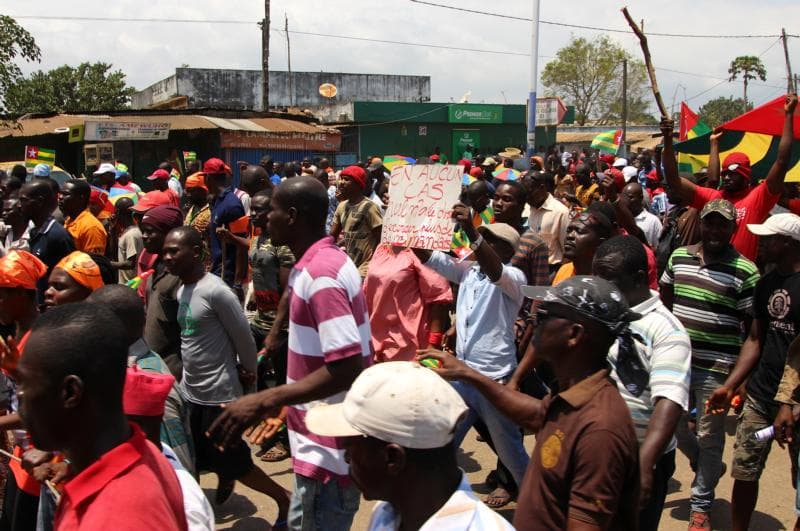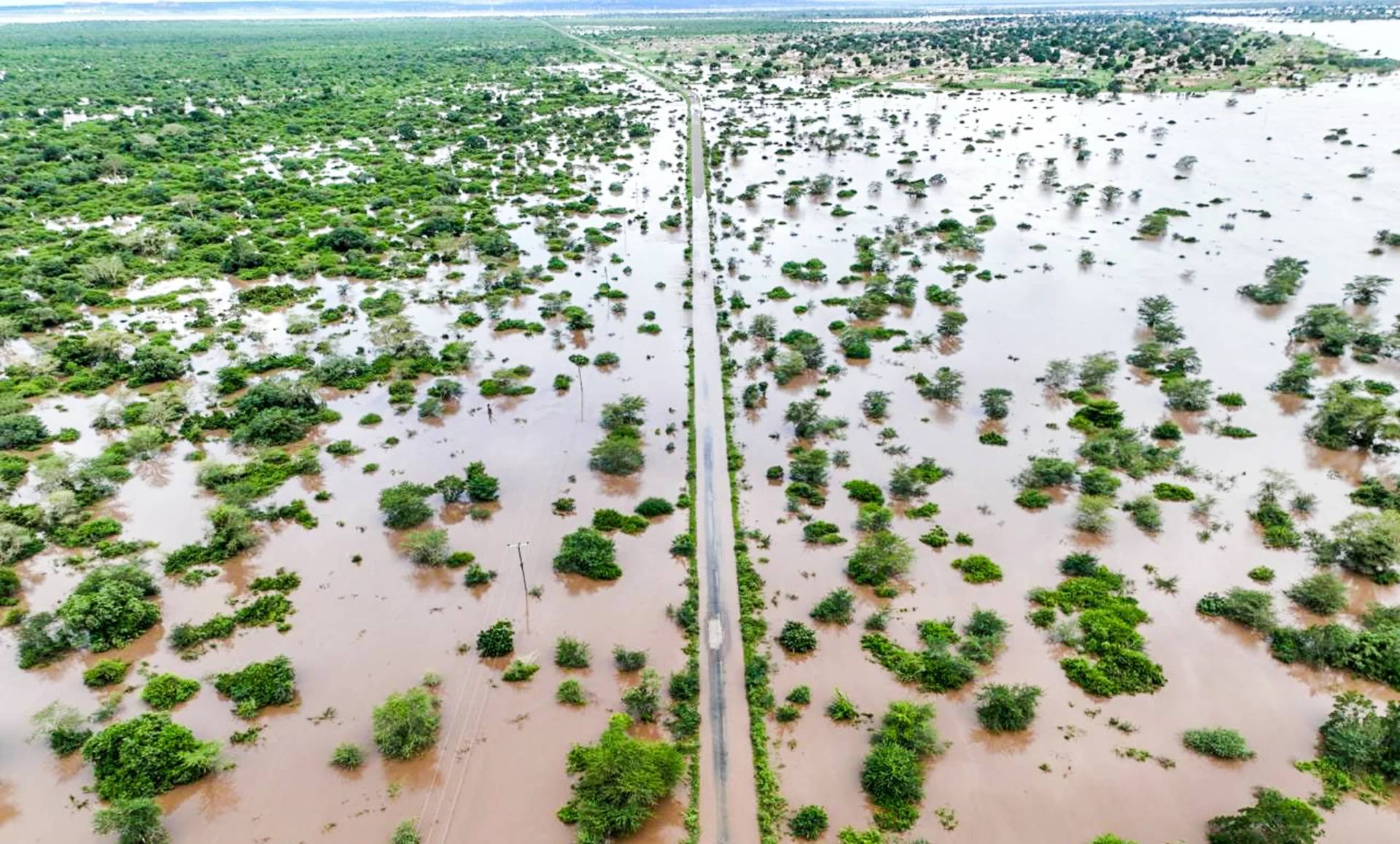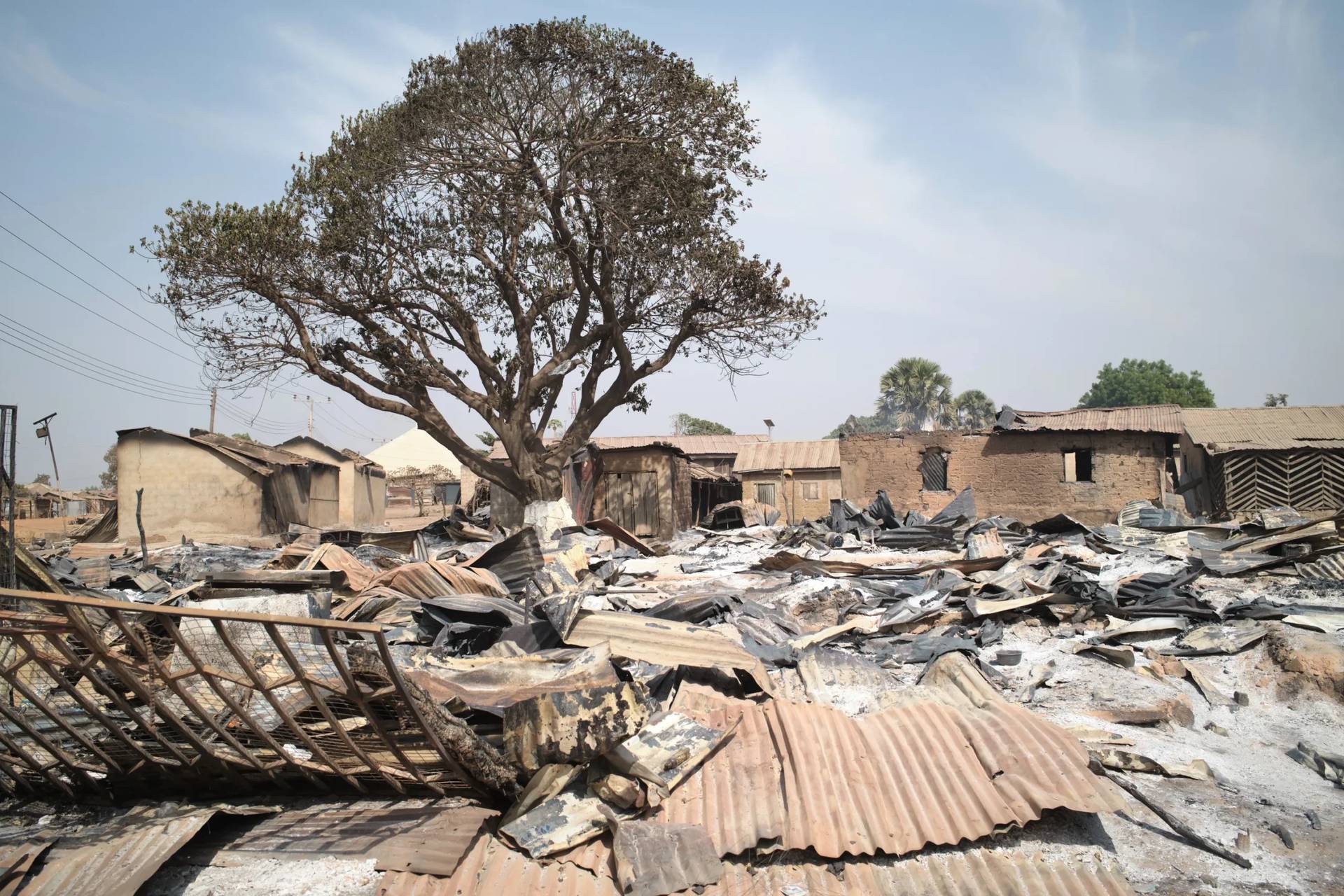YAOUNDÉ, Cameroon – Togo’s bishops say they “cannot stay indifferent” to the crisis engulfing the West African country.
The bishops issued their statement at the conclusion of their Jan. 7-11 general conference which took place in Kpalimé, about 75 miles north of the capital Lomé.
Since 2017, Togo has been going through political turmoil. Opposition political parties and the civil society have been staging street protests, calling for political and institutional reforms, and pressuring President Faure Gnassingbé to step down in the build-up to presidential elections in 2020.
Gnassingbé has been in office since 2005, following the death of his father, Gnassingbé Eyadema. Eyadema had ruled Togo for 38 years, ever since he overthrew the country’s second president, Nicolas Grunitzky, in a coup d’état in 1967.
In September 2017, Togo’s 14-party opposition coalition rejected a government bill to restore a two-term presidency that would not be retroactive – allowing Gnassingbé to run again in 2020 and 2025.
The opposition boycotted December elections for the nation’s parliament, which the bishops had asked to be postponed.
In November, the bishops’ conference said organizing any election without the necessary reforms “will not solve the Togolese question, it will only exasperate tensions and violence.”
They said Togo needs “a radical change in the way of governing and doing politics, if the system does not change, the problems will always remain the same.”
Most opposition parties wanted the elections delayed until 2020, when they could be held concurrently with the presidential poll.
In their Jan. 11 statement, the bishops called on the clergy in the country “to be courageous in addressing Togo’s political crisis in the light of the Truth.”
“We, Priests of Jesus Christ – the Prince of Peace – cannot stay indifferent in the face of the events we live in our country today … Violence against the wounded, the detained and the dead which have punctuated the period of dialogue among political actors is deplorable,” the bishops’ statement said. “We must oppose acts which in our understanding are against human dignity. To speak out therefore becomes a courageous testimony.”
Catholics form about 25 percent of Togo’s 7.8 million population; the country is 20 percent Muslim.
“The joys and the hopes, the sorrows and anxieties of all people, the poor especially, and of all those who suffer, are also the joys and the hopes, the sorrows and anguishes of the disciples of Christ, and there is nothing really human that has not echoed in their hearts,” the bishops’ statement said.
The bishops promised to provide “exceptional responses” in the face of the country‘s “exceptional circumstances.”
“God’s people require from us words of hope and comfort, but also strong words that call evil, evil and good, good,” they said.
The bishops explained however that they will stay above the political fray and focus on the “values which transcend political cleavages: the dignity of man created in the image of God and therefore, condemns all acts which deny this dignity; the values of truth and justice.”
The bishops said they were not supporting one political party over another, but that “the Church cannot remain silent or fail to speak out on what constitutes the foundation of living together in our country. if not, she will no more be a witness to Christ.”
“The Church must not stop challenging consciences or calling on leaders to make choices which respect the human person.”
However, the bishops said priests should not talk about politics on social media, but should speak only inside their churches.
“We must address the people in our churches and always rely on the Word of God. Those who listen are free to share the message if they want,” they said.
Church leaders continue to be concerned that due to the opposition boycott, the new parliament will not reflect the will of the people.
“The sad reality is that in the Togolese Parliament only the majority linked to the president will take decisions, since the opposition, commonly called C14, is no longer represented. Therefore, it will no longer be able to participate actively in the various debates on the contents of the legislative provisions and on the constitutional reforms that will take place in Parliament. This will certainly not help a climate of peace and stability and may be the cause of further violent clashes in the future,” Father Donald Zagore, of the Society for African Missions (SMA), told Fides, a Vatican-affiliated news agency.













